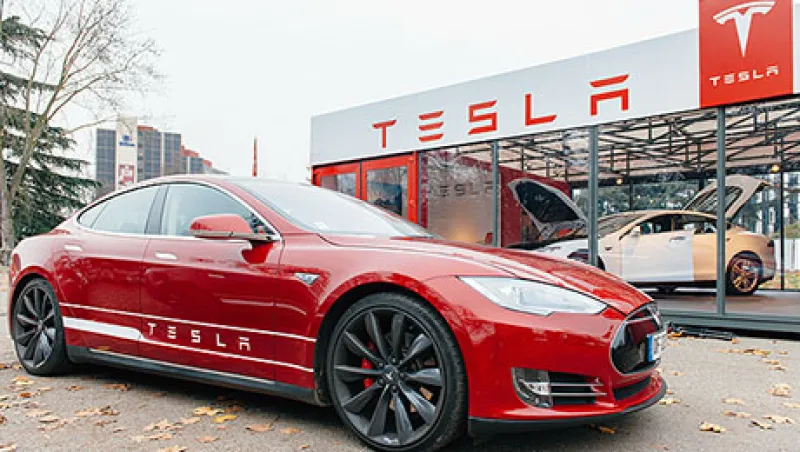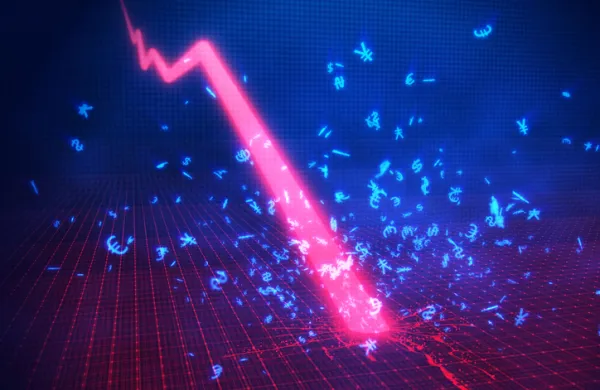Electric carmaker Tesla cheered investors this week when its market value eclipsed that of traditional auto company Ford Motor Co. But its popularity also ignited a debate over which stocks should be considered ‘ethical.’
Tesla’s market capitalization, or the total value of its outstanding shares, rose to $48.7 billion on Monday, overtaking Ford’s $45.6 billion after the Dearborn, Michigan-based company disclosed disappointing March sales. The momentous moment prompted a tweet from Elon Musk, Tesla’s co-founder and CEO, who said there was “stormy weather in Shortville,” referring to investors betting against the Palo Alto, California-based business.
Tesla, founded in 2003, was created by “a group of engineers in Silicon Valley who wanted to prove that electric cars could be better than gasoline-powered cars,” according to its website. For so-called ethical investors who have stood by Tesla since its formative years as a clean-energy automaker, the milestone in its market value underscored the fact that an ethical play can also produce good returns. Still, some investment managers question whether Tesla is suitable for ethical portfolios, as its suppliers use cobalt from mines in the Democratic Republic of Congo that are under scrutiny by human rights group Amnesty International.
“I sit on the side where I am wondering how ethical it is,” Richard Robinson, a money manager at Ashburton Investments, said in an interview. “I think there should be more stringent detailing on the supply sourcing.”
Tesla didn’t respond to emails and phone calls seeking comment.
In January 2016, Amnesty International released a report documenting the hazardous conditions in which workers, including thousands of children, were mining for cobalt in the Democratic Republic of the Congo, or DRC. “Despite the potentially fatal health effects of prolonged exposure to cobalt, adult and child miners work without even the most basic protective equipment,” the group said in the report, claiming to issue “the first comprehensive account of how cobalt enters the supply chain of many of the world’s leading brands.”
In September, Amnesty International provided an update, saying electric carmakers General Motors Co., Renault-Nissan Alliance and Tesla had failed to disclose what measures they were taking to ensure that cobalt mined by children as young as seven in the DRC was not used in their batteries.
Historically, Tesla has used several battery suppliers, including Panasonic Corp. (announced in a press release in 2011) and LG Chem (according to a Washington Post interview). Panasonic and LG Chem didn’t respond to requests for comment.
Skagen Funds, a Norwegian fund group with more than £10 billion in assets (about $12.5 billion), doesn’t own Tesla shares, but admits to having struggled with concerns about cobalt in other investments.
“When it comes to the cobalt issue, we have evaluated back and forth, based on the human rights issue,” Trygve Meyer, Skagen’s environmental, social and governance specialist, said in an interview. “It is a very hard one to trace back and be definite on.”
Some investors who have benefitted from Tesla’s strong growth in share price say they hold the company accountable through persistent engagement. Triodos Investment Management believes in the Tesla story, holding stock in its Sustainable Pioneer Fund since 2011.
“The company meets our criteria on conflict minerals with regards to tin, gold, tungsten and tantalum,” Rosl Veltmeijer, head of research at Triodos, said in an interview. “On the topic of cobalt sourcing we are still assessing and engaging with the company. Cobalt is an increasing area of concern due to the report from Amnesty International.”
Veltmeijer said that Triodos will not hesitate to drop a stock if a company fails to meet its minimum standards in any area, and that it’s “carefully” monitoring Tesla’s “progress with regards to cobalt sourcing.”
Major global fund groups, including Allianz Global Investors, Baillie Gifford, T. Rowe Price and Fidelity International, also hold the electric car company’s stock. Allianz Global Investors, Baillie Gifford and T Rowe Price didn’t immediately provide comment, while Fidelity International declined to comment. Jupiter Investment Management, which is shorting Tesla's shares, declined to comment.
Peter Frankental, economic relations programme director at Amnesty International, is calling on institutional investors to use their leverage to reduce global human rights violations. “We would like investors to communicate to companies that they will not invest in companies that have human rights abuses in their supply chain,” he said, adding it should be considered a “quality control issue.”
With respect to electric car makers, Frankental suggested that cobalt sourcing is already a quality control concern from a business perspective. “If the cobalt was contaminated in any way and it meant that the batteries were malfunctioning, they would be able to identify the source of the fault, down their supply chain, because they see it as fundamental to their business,” he said.
Last month, several global asset managers, including APG Asset Management, Aviva Investors and Nordea Wealth Management, started a new Corporate Human Rights Benchmark, designed to measure public opinion of companies based on their human rights track record.
In a statement, Mark Wilson, chief executive officer of Aviva, said he hoped that the public measure will “focus attention in the boardroom and allow investors to ask the right questions.”
He added: “More transparency and a desire to improve in the rankings will spark a race to the top in corporate human rights.”
CORRECTION: An earlier version of this story said that Jupiter Investment Management held Tesla's stock. Jupiter is selling the carmaker's shares short.







